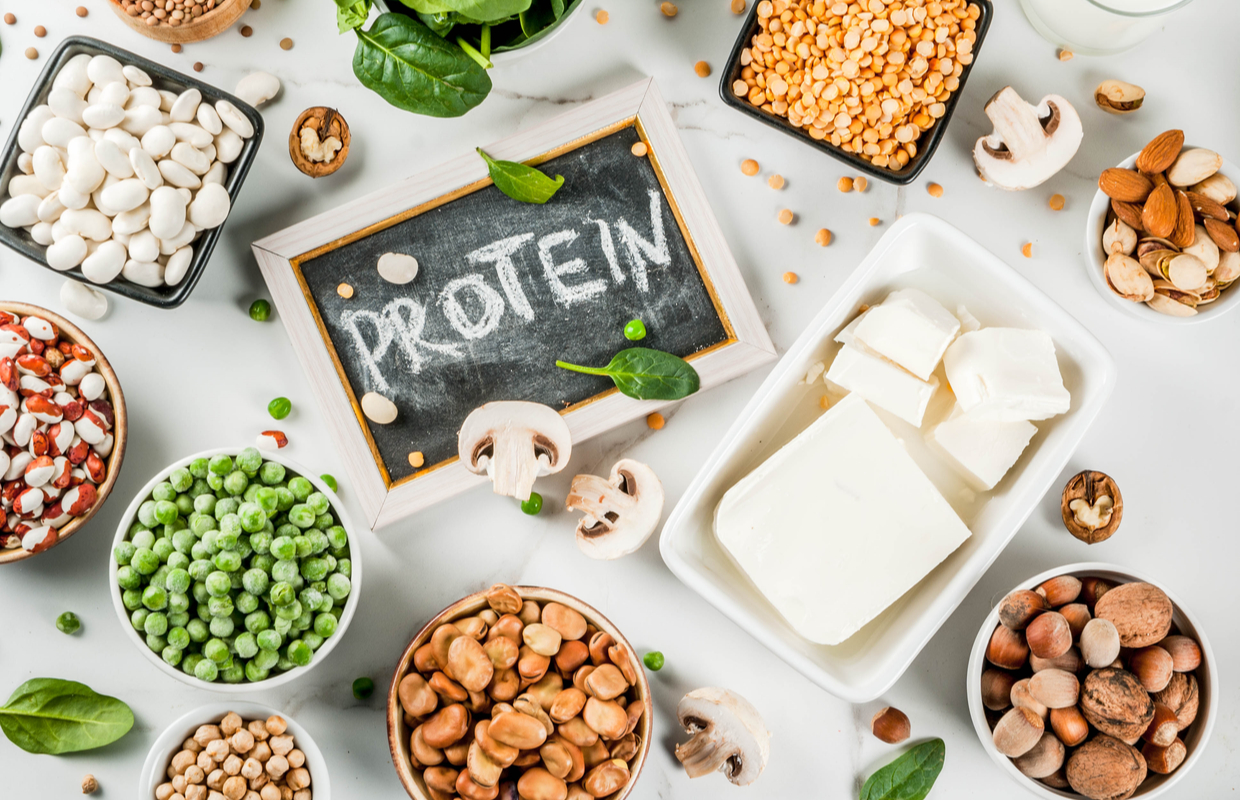More and more people are choosing to be vegetarian or vegan, with women in particular adopting a meat-free diet. But is being vegetarian healthy? And how does a meat-free diet affect your weight?
The number of vegans in Britain has risen by more than 360% is the last 10 years, while around one woman in five is vegan or vegetarian today. And even if they haven’t cut out meat entirely, more people are choosing to eat less of it. But is a vegetarian diet a healthy lifestyle choice for active people? Or, should we be sticking to the meat to fuel our workouts?
The rise of vegetarianism and veganism
Typically, vegetarians exclude meat, including poultry and fish. Most, but not all, eat eggs and dairy foods. Vegans avoid all animal products, including animal-based minor ingredients or additives in food. Some people are vegetarian for religious reasons, others have moral concerns about animal welfare. Increasingly, many people want to reduce their carbon footprint.
People who are vegetarian or vegan for many years may be less likely to die prematurely and less prone to heart disease and some cancers. This is likely to be due in part to their diet, which often contains less saturated fat and more fibre than that of meat eaters. However, vegetarians are also less likely to smoke and, on average, drink less alcohol and be more physically active than meat-eaters. So, a vegetarian diet tends to be linked to other healthy lifestyle choices that may explain the reduced risk of disease.
Is being vegetarian good for healthy weight loss?
A vegetarian diet is no guarantee of a healthy weight. However, vegetarians are typically one or two BMI units lighter than meat eaters. To achieve and maintain a healthy weight, everyone needs to stick to their calorie allowance.
The higher fibre content of a vegetarian diet, rich in fruit and vegetables, means its energy density (calorie content) is lower than most meat-eaters’ diets. This means, vegetarians can eat more without exceeding your calorie allowance. However, while it’s hard to overeat cauliflower, smother it in cheese sauce and the calories shoot up, so you need to be careful.

Best vegetarian protein sources
Most vegetarians have no difficulty meeting their protein needs, especially those who eat eggs or dairy products. Soya protein has a similar nutritional quality to meat. However, it is important to eat a wide variety of different types of protein-containing foods. This will ensure you get all the amino acids that form the essential building blocks for protein in the body. Nut, seeds, legumes, pulses and wholegrains all count towards your protein needs.
Healthy carbohydrate sources
Everyone should aim to choose wholegrain or fibre-rich carbohydrate foods, rather than more refined varieties. Sugar-rich food contains energy, but few other nutrients, so they need to be limited to help cut calories if you are concerned about your weight. Use the natural sweetness of fruit to add a shot of sugar to your diet instead, along with fibre and micronutrients too.
How to get enough vitamins as a vegetarian
A varied vegetarian diet will provide most of the vitamins your body needs. The two vitamins that need special attention are vitamin B12 and vitamin D, both of which we find in animal foods. We can also obtain Vitamin D from sunlight. Everyone should try to expose their arms and face to the sun for around 10 minutes each day during the sunnier months to stimulate the natural production of vitamin D by the skin and build up their store through the winter.
Some foods are also fortified with vitamin D and can provide an important backup. These include margarine, some soya milks and breakfast cereals. In addition it is advised that young children, pregnant women, the elderly and people with dark-coloured skin take a vitamin D supplement – this is especially important for those who are also vegetarian.
Vitamin B12 is virtually absent from pant foods so intake is minimal in vegan diets. However, we only require small quantities our bodies can store it, so vegans should ensure a regular intake of a suitable fortified product such as yeast extract like marmite, or take a B12 supplement.







